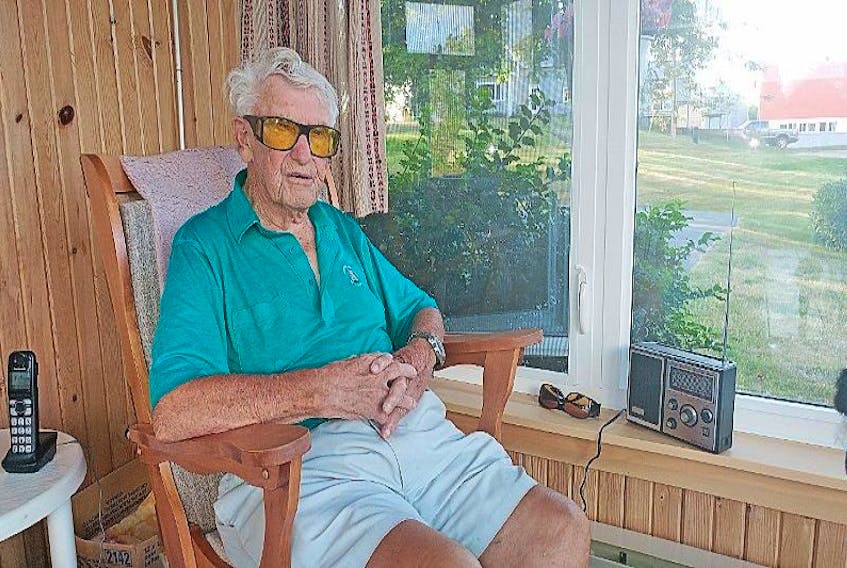The Bacon farm, which still does dairy production today by his son Doug Bacon, has seen many changes over the years in farming methods, production and property.
Bacon’s father, Robert Clinton Bacon (known as Clinton), purchased the then 60-acre farm when he married his wife Lillian, around the beginning of the 1900s.
The methods of farming were much different back in Bacon’s day than now. There were no tractors, so the fields were plowed with teams of horses. Cows were milked by hand.
Some of the vegetables they grew were potatoes, beets and turnips. Bacon’s mother also worked hard to produce preserves, make meals and bake bread. Farm work was tough, but it meant that Clinton and Lillian always had food to feed their eight children.
“We were self sufficient, we never went hungry,” said Bacon. “We had no money but we were happy.”
One source of income was the butter they made. Around 30 lb. would be produced a week, which was sold for $0.35/lb. and resulted in earnings around $10.50 a week.
Farmers back in the day always had to “cock the hay,” or bunch up the hay before dark, because the hay would otherwise heat up at night and potentially cause a barn fire.
“We didn’t mind work – because everyone was the same,” said Bacon. “There was no power, there was no tractors, because everyone was doing it by hand.”
There was no electricity in Nappan until after the war, when the provincial government brought the rural electrification initiative to Nappan. None of the roads would be plowed for snow either.
Bacon remembers the first radio the family had, before they had electricity. It ran on a thousand-hour battery that his father bought from Canadian Tire, and he only bought one a year due to the cost – so the family had to use this entertainment sparingly.
Roger was 13 years old when the Second World War broke out. Some of his brothers were overseas, another sibling worked on planes and Roger later joined the reserve army, while also working as a machinist.
Farming in the old days
NAPPAN - Ninety-one-year-old Roger Bacon, once the agriculture minister and premier of Nova Scotia, still remembers growing up on his farm in Nappan.

STORY CONTINUES BELOW THESE SALTWIRE VIDEOS
Sidney Crosby & Drake Batherson NS Showdown #hockey #halifax #sports #penguins #ottawa








